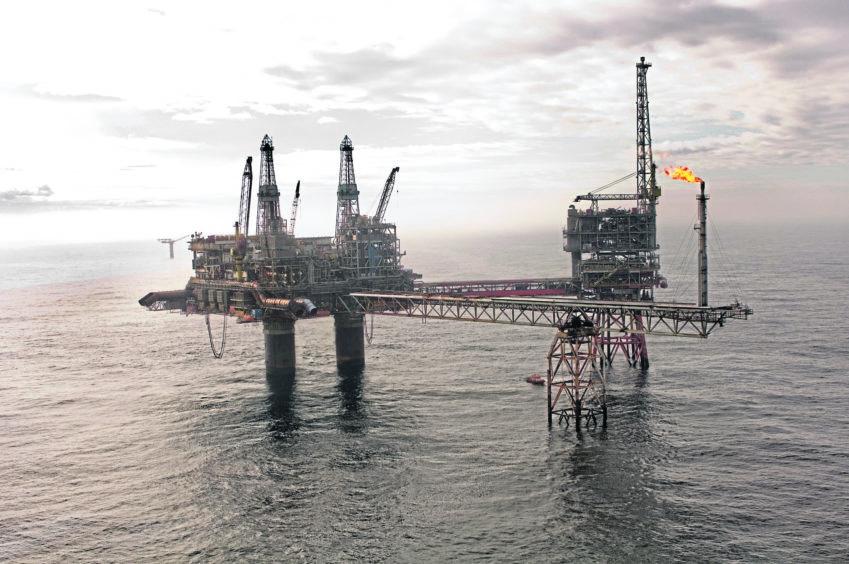
Oil firm Apache has been fined £400,000 over safety failings which led to a gas leak on one of its North Sea platforms.
The case against Apache called at Aberdeen Sheriff Court, where the firm admitted fault over the high-pressure gas release on the Beryl Alpha rig on June 2, 2014.
The court heard the firm failed to take appropriate measures to prevent fire and explosion and failed to carry out a suitable and sufficient risk assessment for how it handled the depressurisation of gas lift wells on the rig.
Depute fiscal Jemma Eadie said depressurisation of well 86A was carried out as “it was not performing to its peak”.
However, she said the operator did so without following the correct sequence, meaning that the well’s emergency shut down function was deactivated and a large quantity of hydrocarbon gas was released “uncontrollably”.
Ms Eadie added: “The production assistant undertaking the task didn’t have procedure to follow but had done it before.”
She said the worker heard a “rush of gas” before going to investigate the noise. As soon as he opened the door the water deluge system was activated, meaning gas was present and “water gushed” down.
“He intimated to the control room that he was safe and went to the allocated muster point,” she added. “Water and foam cascaded from the area but you couldn’t see a gas cloud.”
She said this is known as a “blowdown” in the trade, and the scale of hydrocarbon release would have been “limited”.
The Crown, however, said, the 100-plus members of staff were exposed to a risk of serious injury or death should the flammable gas have ignited.
There was no such explosion or fire though, and Apache’s solicitor Rona Jamieson said: “There was a period of seven minutes where the gas was at flammable limits and people would be at risk. Nobody was working in the area at the time though one man did enter the deluge area briefly.”
Ms Jamieson said Apache had cooperated fully with a Health and Safety Executive investigation, carrying their own independent investigation out too, and put in place further training and risk and competency assessments.
She told the court: “This is not the case of an organisation failing to put in place any risk assessment or procedures but more a failure to assess the risk of human error.
“There was perhaps an over-reliance on competence rather than training. The company fully accepts that had that safe procedure been enshrined in writing, it would have been followed more rigorously. It would have made the risk of operator error less.”
Fining Apache £400,000, Sheriff Philip Mann added: “This was a serious breach of health and safety responsibilities which had the risk of serious injury, but fortunately that risk was low.
“However, there was a system in place which, if it had been followed, would have prevented the situation from occurring.
“The company has a good health and safety record, no previous convictions and has fully cooperated with steps to remedy the situation.”
He added that given the Houston and Aberdeen-based firm’s high turnover a £600,000 fine was wholly appropriate. This was reduced to £400,000 in light of the company’s guilty plea, though.
Apache pled guilty to breaching Regulation 9 (1) (a) of the Offshore Installations (Prevention of Fire and Explosion, and Emergency Response) Regulations 1995 and Section 33(1) of the Health and Safety at Work Act 1974.
Recommended for you
